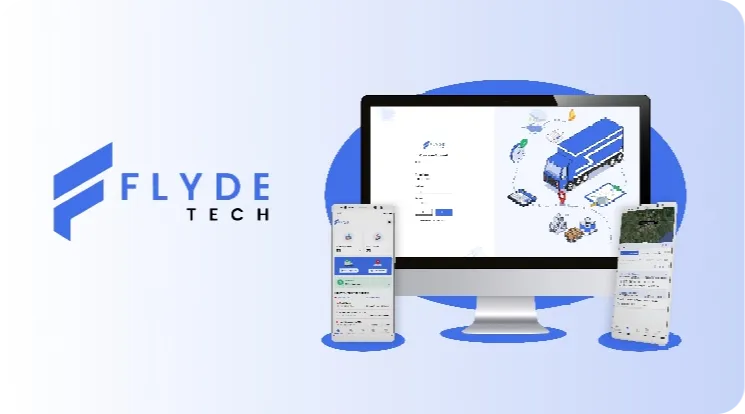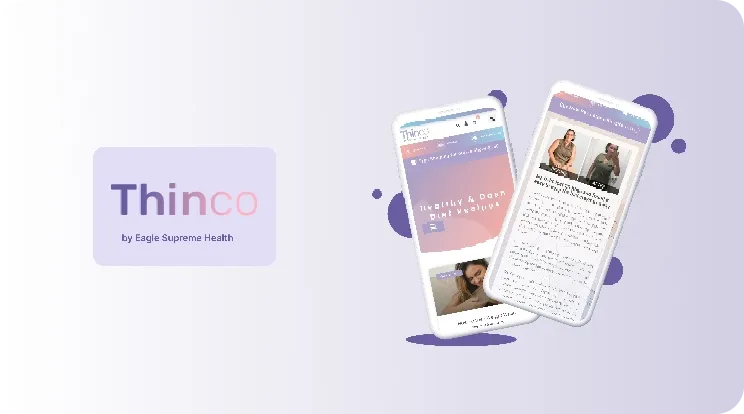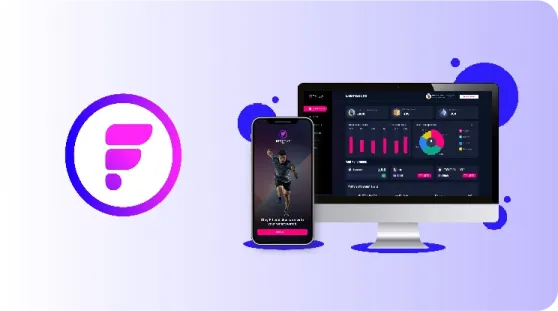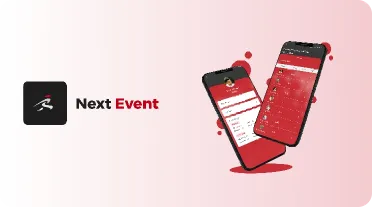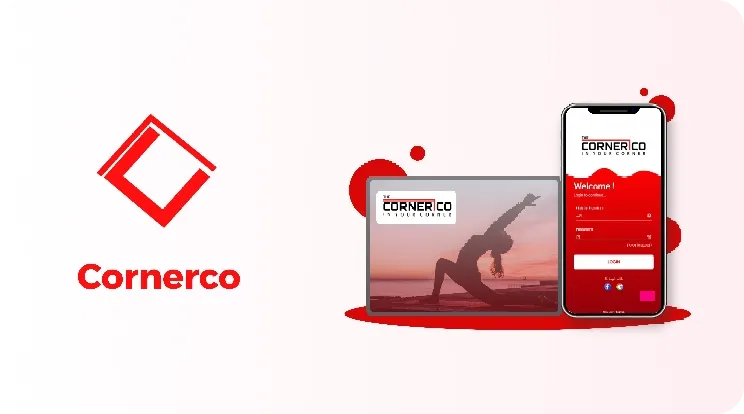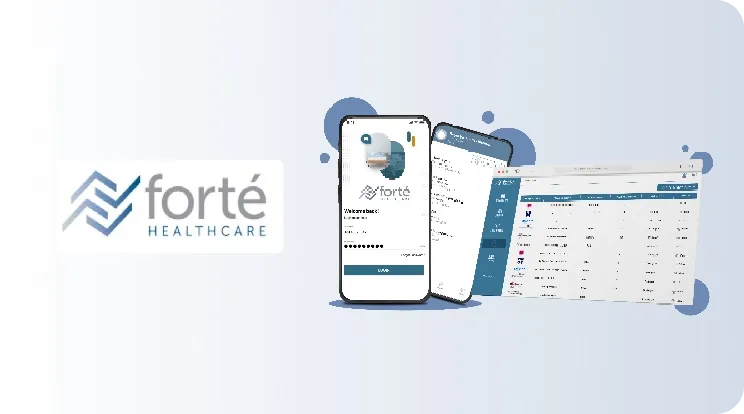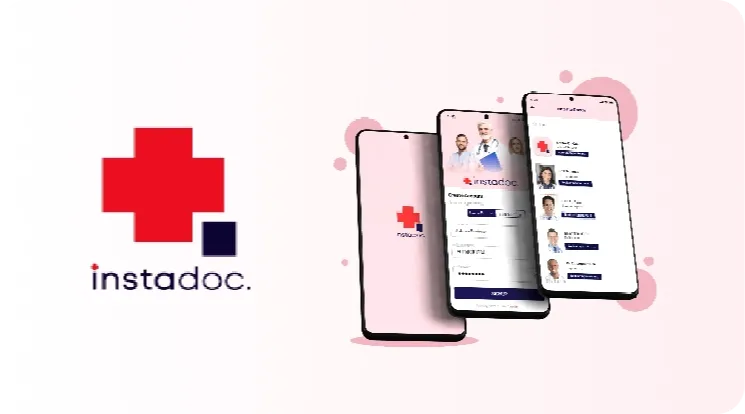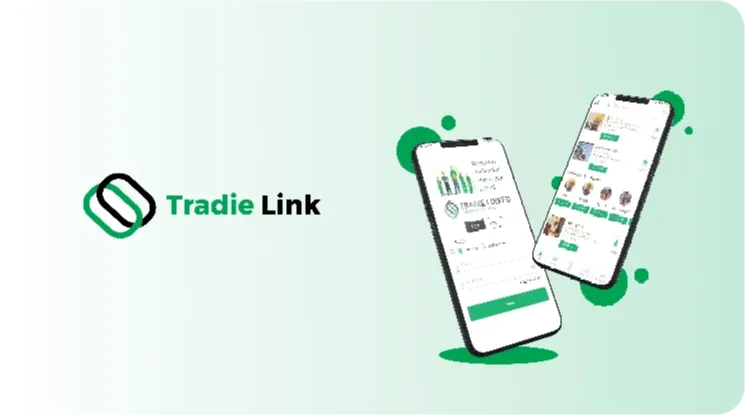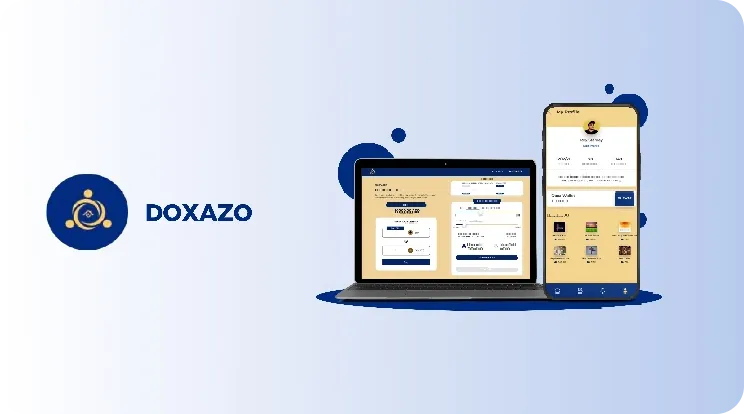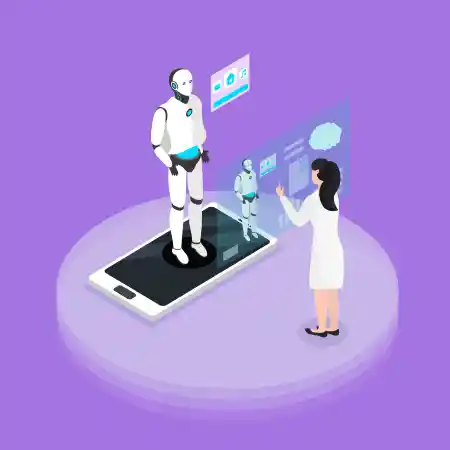
Guide to Build Compliant MVPs for Australian Health-Tech Startups With AI-Powered Solutions
Aug 18, 2025
In Australia’s booming health-tech sector, innovation is moving fast — but so are regulations. If you’re a startup founder looking to develop a minimum viable product (MVP) for the healthcare market, there’s one golden rule: compliance isn’t optional. From HIPAA (for US-linked operations) to Australian Privacy Principles (APPs) and My Health Record legislation, the rules governing healthcare data are strict, and failure to comply can mean legal trouble, data breaches, and reputational damage.
The good news? With the right strategy — and the right tech stack — you can build an MVP that not only passes compliance checks but also leverages AI-powered mobile app development to stand out in the competitive Australian market.
Understanding the Australian Health-Tech Compliance Landscape
Before jumping into development, you need to understand the regulatory ecosystem your product will live in.
- Australian Privacy Principles (APPs): Govern how health data is collected, used, and stored.
- My Health Records Act 2012: Applies if your app integrates with Australia's national digital health record.
- HIPAA: Relevant if your app serves US-based clinics, patients, or partners.
- Telehealth Guidelines: Requirements for remote consultations, including secure video and patient identity verification.
Stat to Know: According to the Australian Digital Health Agency, 93% of healthcare organisations have increased their investment in secure digital solutions since 2021 — but 41% still struggle with compliance when scaling.
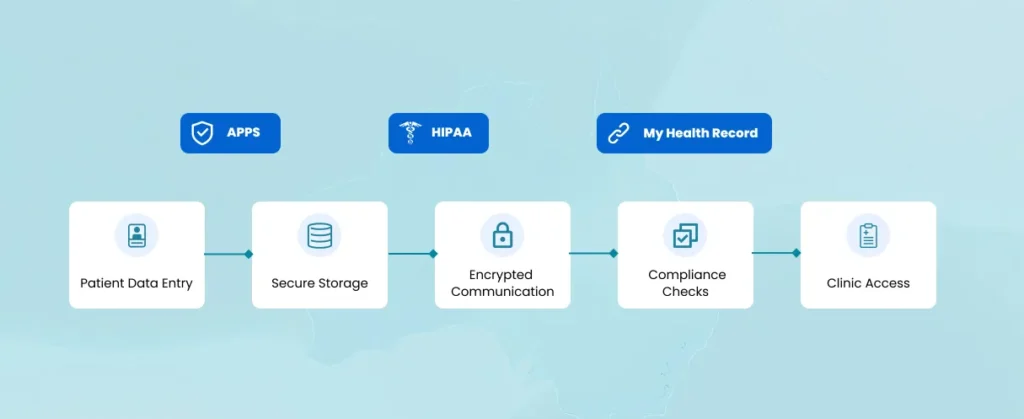
Get a detailed, compliance-ready cost breakdown tailored to your idea — no guesswork, no hidden fees.
Why Building a Compliant MVP Is Different for Health-Tech?
Unlike retail or travel apps, healthcare MVPs must meet strict security and data handling standards from the very start.
- E-commerce MVP: Can launch first and improve payment security later.
- Health-tech MVP: Must implement encrypted patient records, secure cloud storage, and role-based access control before launch.
Why this matters: If your MVP fails compliance, you can’t run pilot tests with real clinics or patients — wasting months of effort.
The AI Advantage in Building MVPs
AI isn’t just a buzzword here — it’s a game-changer for compliant MVP development. As an AI development company and mobile app development company in Australia, we’ve seen startups cut time-to-market by 40% using AI-powered frameworks for:
- Automated compliance checks: AI can scan your code and database configurations for security vulnerabilities.
- AI-driven patient onboarding: Verifies documents and ensures secure identity validation.
- AI scheduling agents: Can handle HIPAA-compliant patient bookings without exposing sensitive data.
Example: A Sydney-based clinic implemented an AI booking assistant in its telehealth MVP. Within 3 months, manual booking calls dropped by 65%, while compliance audits passed with zero issues.
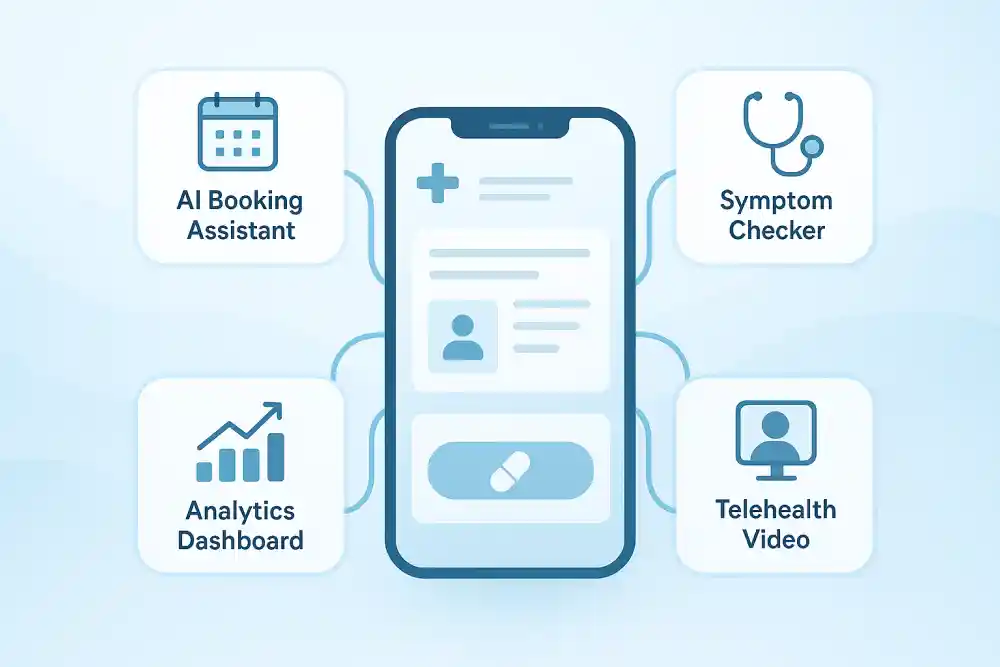
Book your 1-hour strategy session with our health-tech & AI experts. We’ll outline compliance steps, AI possibilities, and a clear development roadmap.
Step-by-Step Guide to Building a Compliant MVP
Here’s a practical roadmap for health-tech founders in Australia.
Step 1: Define Your Compliance Requirements
- Identify applicable regulations (APPs, HIPAA, ISO 27001, etc.).
- Map out your data flow — what data you collect, store, and transmit.
- Engage with a compliance consultant early (Sunrise Technologies often assists during MVP scoping).
Step 2: Choose the Right Tech Stack
- Mobile App Development in Australia often requires local cloud hosting for sensitive data.
- For Android app development, ensure encryption via AES-256 and secure key storage in the Android Keystore.
- For iOS app development, use Keychain and enable App Transport Security (ATS).
- Pick frameworks with built-in security features (React Native with secure libraries, Flutter with encryption plugins).
Step 3: Integrate Security from Day One
- Role-based access control.
- End-to-end encryption for chat and video calls.
- Encrypted offline storage for rural telehealth users.
Step 4: Build AI-Powered Features Safely
- AI triage bots — Collect symptoms without storing personally identifiable information (PII) in training data.
- AI transcription tools — Convert telehealth session audio to notes, keeping transcripts encrypted.
Step 5: Test for Compliance Before Launch
- Penetration testing.
- Data protection impact assessments.
- Beta testing with real clinic workflows.
Why Off-the-Shelf Software Often Fails Australian Healthcare Compliance
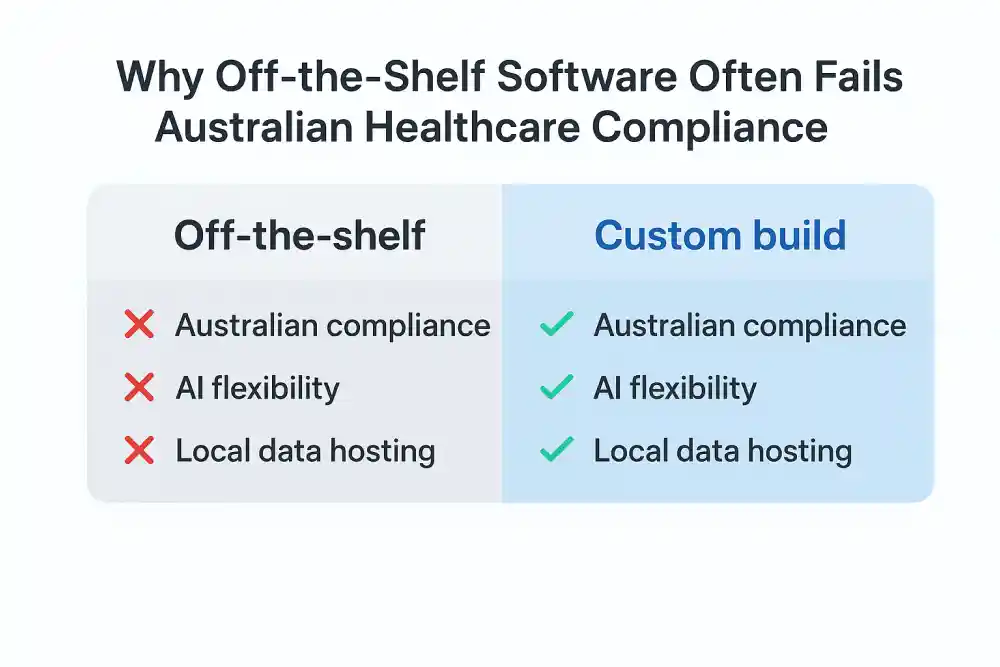
It’s tempting to grab a ready-made solution and tweak it, but consider the challenges:
- Most aren’t configured for Australian privacy laws (APPs).
- HIPAA compliance ≠ APP compliance — US-based standards don’t guarantee Australian legal adherence.
- Limited flexibility to integrate AI solutions for automation and efficiency.
Case Example:
A Melbourne physiotherapy chain tried using a generic US-based patient portal. Despite HIPAA compliance, it failed APP compliance because:
- Patient data was stored in US servers without Australian-approved safeguards.
Outcome: The company incurred $40,000 in legal remediation costs.
Telehealth MVPs Done Right
Telehealth is one of the fastest-growing areas in health-tech. According to IBISWorld, telehealth revenue in Australia grew 21% in 2024. For compliance:
- Video calls must be encrypted (WebRTC with DTLS/SRTP).
- Patient consent forms must be digital and timestamped.
- AI-based transcription and summarisation must not leak data.
Example:
A Brisbane dermatology startup used our AI-powered telehealth MVP framework with HIPAA + APP compliance. The platform now handles over 2,000 consultations monthly without a single compliance breach.
Real-Time Examples of Compliant MVP Features
- AI-powered Appointment Booking Bot: HIPAA & APP compliant for secure scheduling.
- Secure In-App Messaging: Messages auto-delete after 30 days to protect patient data.
- AI-Based Symptom Checker: Supports pre-consultation triage without storing personally identifiable information (PII).
- Patient Dashboard: Access via biometric authentication for enhanced security.
- Data Analytics Dashboard: Provides anonymised reporting for healthcare administrators and practitioners.
Stats That Matter
- 70% of health-tech startups fail compliance audits in their first year if they skip early-stage compliance planning.
- AI integration can reduce operational costs by 30% in the first 12 months.
- Patient no-shows can drop by up to 45% with AI-powered booking reminders.
Enjoy 8 weeks of free post-launch maintenance when you build your health-tech MVP with us. Smooth updates, zero stress.
How Sunrise Technologies Can Work for You
As a mobile app development company in Australia with a dedicated AI solutions, we specialise in building secure, compliant, and AI-powered health-tech MVPs. We:
- Guide you through compliance planning.
- Build Android and iOS apps with end-to-end encryption.
- Integrate AI-powered agents for booking, triage, analytics, and more.
- Host on Australian-compliant cloud infrastructure.
Conclusion
Building a compliant MVP for Australian health-tech startups isn’t just about ticking legal boxes — it’s about earning patient trust, scaling without legal risks, and leveraging AI for long-term success. Whether you’re launching a telehealth platform, a patient record management system, or an AI triage tool, the path is clear: start with compliance, build with security, and scale with AI.
A compliant MVP (Minimum Viable Product) is a launch-ready version of your healthcare app that already meets Australian regulatory requirements such as the Australian Privacy Principles (APPs) and the My Health Records Act. If your solution serves US-based patients or partners, HIPAA compliance is also necessary. At Sunrise Technologies, we build MVPs with compliance built in from day one, so you can start testing with real clinics without legal delays.
Compliance starts with secure data handling, encrypted communication, and Australian-based cloud hosting. You must implement role-based access, maintain audit logs, and follow industry-specific privacy laws. Sunrise Technologies develops mobile apps in Australia with full compliance to APPs, HIPAA (if required), and telehealth security standards.
Yes. AI features such as patient booking assistants, automated transcription, and predictive analytics can be fully compliant if designed correctly. Sunrise Technologies specialises in AI-powered mobile app development that ensures HIPAA and APP compliance without compromising innovation.
Absolutely. Many Australian clinics now use telehealth platforms that comply with HIPAA and APP requirements. Sunrise Technologies can integrate secure video consultations, encrypted messaging, and digital consent forms directly into your MVP so you can launch with telehealth-ready capabilities.
An AI-powered MVP can automate patient bookings, reduce no-shows, streamline diagnosis support, and provide actionable insights — all while cutting operational costs. Sunrise Technologies develops AI solutions that enhance patient experience and clinic efficiency while keeping data privacy a top priority.
If you operate solely in Australia, HIPAA compliance isn’t mandatory — but adopting it can give your app global readiness and extra credibility. Sunrise Technologies can build your MVP to meet both Australian and US healthcare standards so you can scale internationally without rebuilding your tech.
Sam is a chartered professional engineer with over 15 years of extensive experience in the software technology space. Over the years, Sam has held the position of Chief Technology Consultant for tech companies both in Australia and abroad before establishing his own software consulting firm in Sydney, Australia. In his current role, he manages a large team of developers and engineers across Australia and internationally, dedicated to delivering the best in software technology.
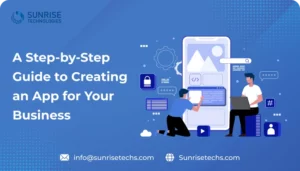
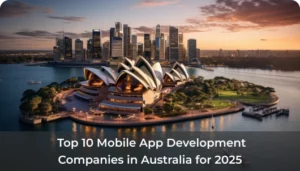
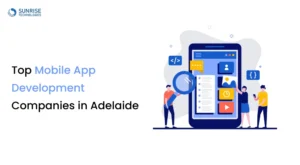
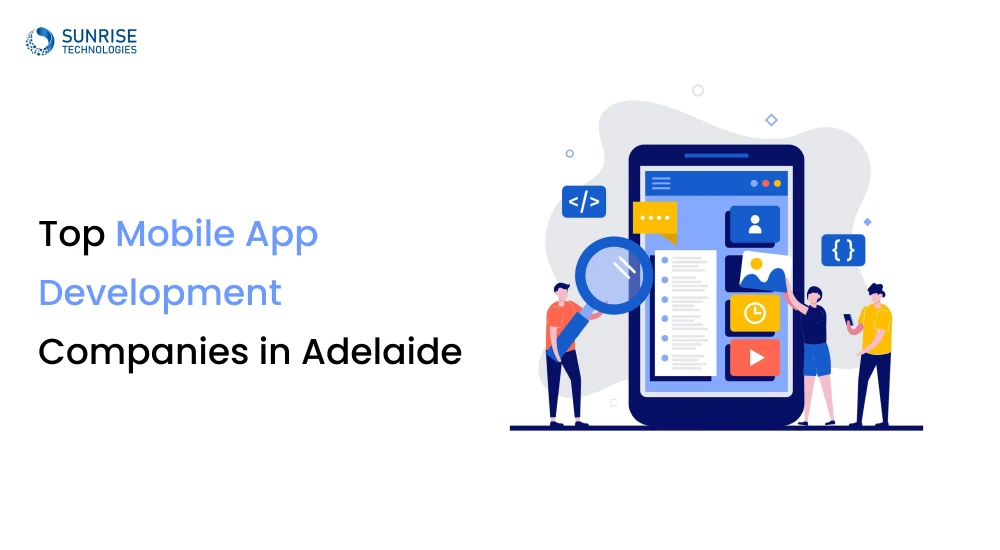
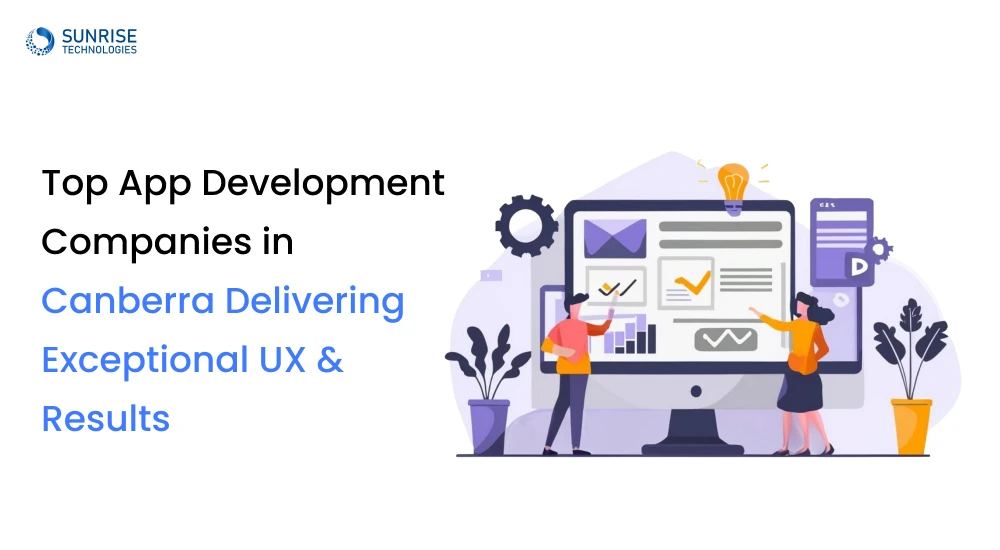
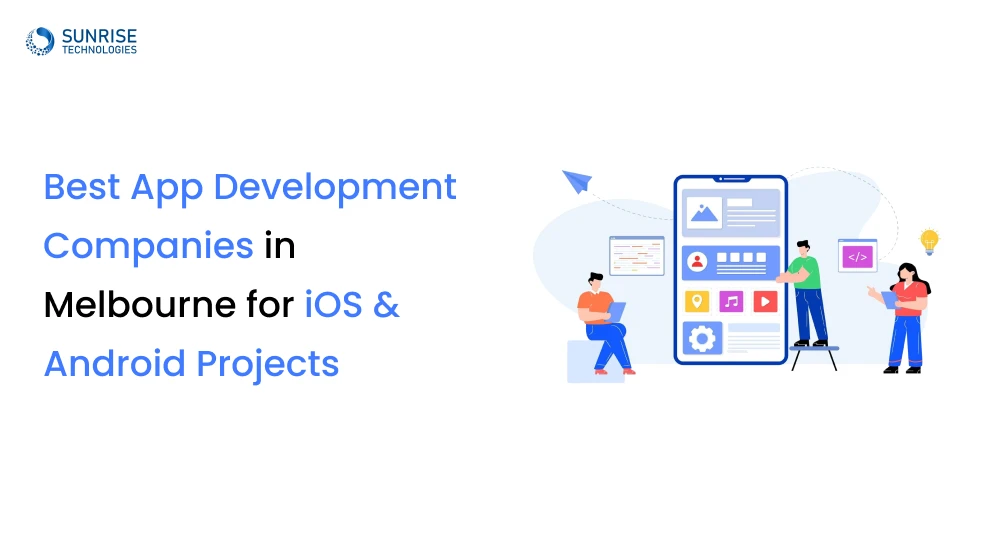
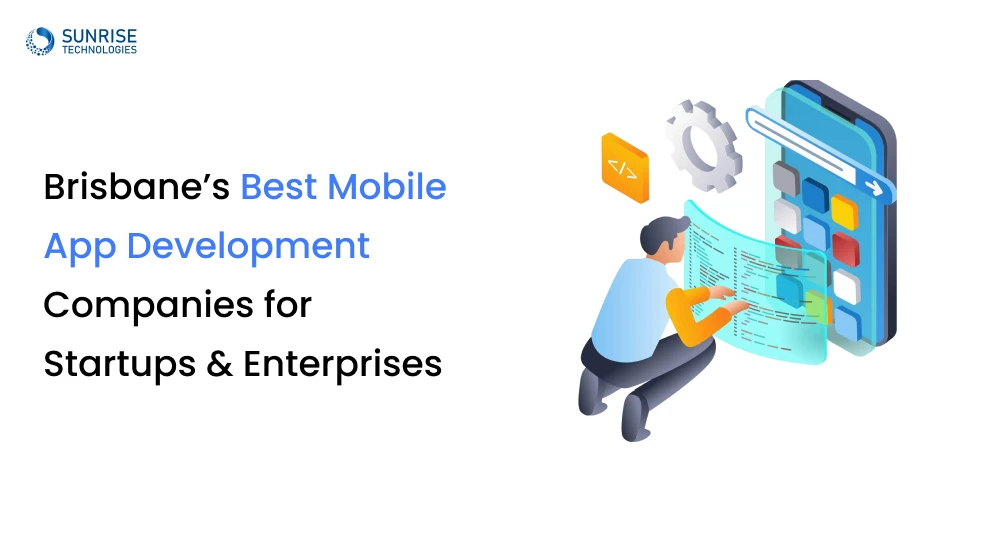
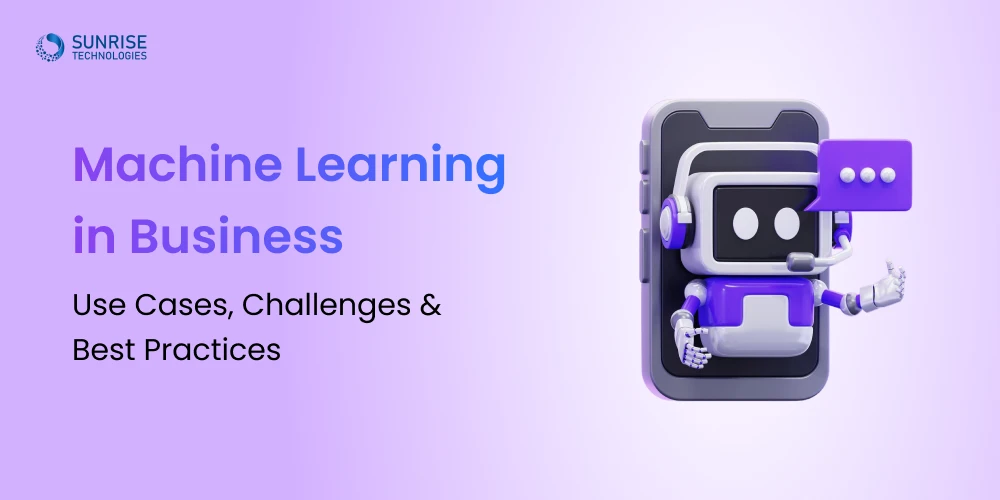
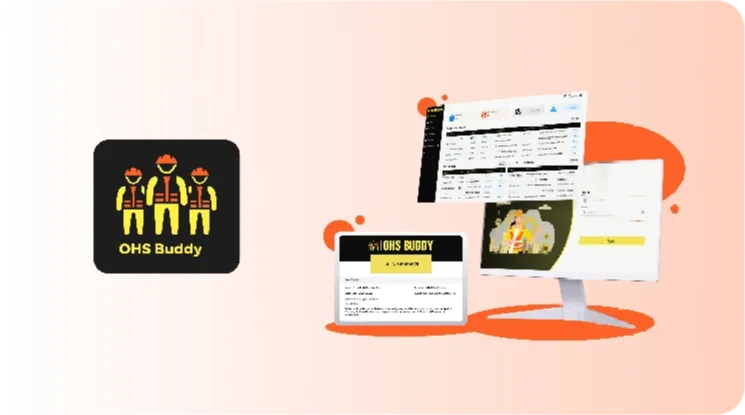
Cloud Based Project Management Platform
Read the challenges we faced and how we helped
View Case Study


